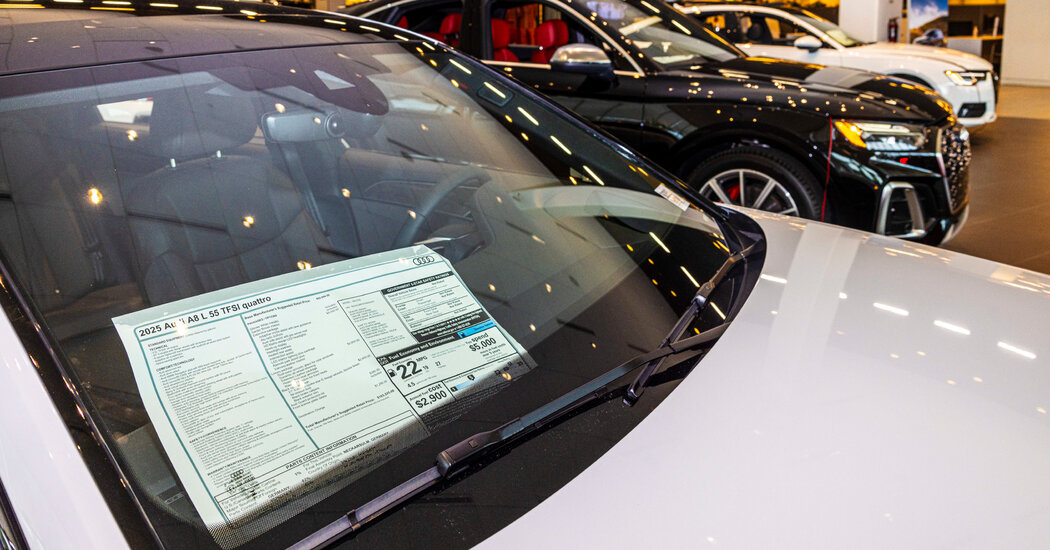Impact of New Tariffs on Imported Vehicles and Auto Parts
As of Thursday, a new 25% tariff on imported vehicles has been implemented, a move endorsed by President Trump as a catalyst for domestic investment and job creation. However, market analysts warn that this policy may substantially increase the prices of new cars.
Details of the Tariff Regulations
The tariff applies to all vehicles manufactured outside the United States. Beginning on May 3, a similar duty will be placed on auto parts imported from abroad, which is expected to further inflate the cost of both domestically assembled vehicles and necessary auto repairs.
Exemptions and Their Implications
There are provisions for vehicles assembled in Mexico or Canada that comply with the stipulations of existing free trade agreements. For instance, auto manufacturers will be exempt from duties on certain components, such as engines and batteries, that are produced in the U.S. and then used in vehicles assembled in either of the two neighboring countries.
This exemption is particularly advantageous for models like the Chevrolet Equinox electric vehicle, which is assembled in Mexico yet incorporates U.S.-made battery packs and components, thus minimizing the additional tariff burden.
Potential Consequences for Domestic Manufacturing
While some vehicles might benefit from these exemptions, the increased cost of imported parts is projected to have a broader negative impact on the U.S. auto industry, particularly in production hubs like Michigan and Tennessee. Many vehicles manufactured in these states contain a significant proportion of foreign-sourced components. For example, nearly 90% of certain Mercedes-Benz models produced in Alabama rely on engines and transmissions imported from Europe, as indicated by the National Highway Traffic Safety Administration.
Variable Impact Across Different Vehicles
The effect of these tariffs will vary significantly depending on the specific vehicle model. Cars produced with a high percentage of American-made parts, such as the Tesla Model Y and Honda Passport, are likely to encounter lower tariff costs. Conversely, vehicles manufactured overseas, like the Toyota Prius from Japan and Porsche models from Germany, will incur much steeper added costs due to the new tariffs.
Broader Economic Ramifications
Even consumers who do not intend to purchase new vehicles will feel the ripple effects of these tariffs. Increased costs for auto parts, such as tires and brake pads, are likely to become a burden for all car owners. Michael Holmes, co-CEO of Virginia Tire and Auto, noted that while his business would attempt to absorb these initial costs, it is simply unsustainable in the long term, suggesting that consumers should expect price increases.
Furthermore, the tariffs could indirectly elevate used car prices as demand shifts towards these vehicles when new cars become too expensive. Higher repair costs may also lead to increased insurance premiums as the market adjusts.
Conclusion
The implementation of tariffs on imported vehicles and parts represents a significant shift in U.S. trade policy, with far-reaching implications for both consumers and the auto industry. From rising vehicle prices to higher costs for maintenance and repairs, the repercussions of these tariffs will likely resonate throughout the economy for the foreseeable future.


